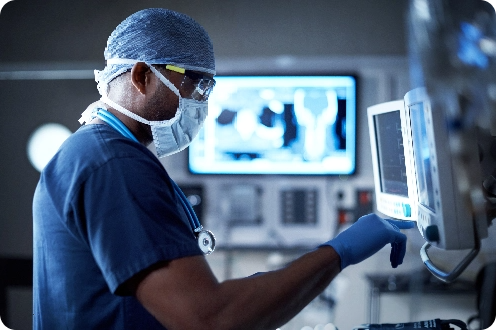If You've Been Tested for COVID-19
Test results for COVID-19 usually come back in about 24 hours. Until you hear back from your provider, however, you should continue to follow the good hygiene and social distancing practices recommended by the Centers for Disease Control and Prevention:
- Stay at home and limit your contact with others.
- Wash your hands thoroughly, and often.
- Cover your sneeze or cough.
- Don’t touch your eyes, nose or mouth.
- Keep high-touch surfaces clean and disinfected.
What to expect after your COVID-19 test
If you have been tested for COVID-19 and are awaiting your results, here’s what you need to know.
Tested Patient - English (PDF 72 KB) | Tested Patient - Spanish (PDF 82 KB)
If you test positive for COVID-19
What you need to know if you test positive for COVID-19
If you are sick with COVID-19, follow the steps below to care for yourself and to help stop the spread in your home and community.
- Stay home except to get medical care.
- Separate yourself from other people.
- Monitor your symptoms.
- Seek medical attention if you begin to experience trouble breathing; persistent pain or pressure in the chest; new confusion; an inability to wake or stay awake; or discoloration of the skin, lips or nails.
- If your symptoms become severe, call the nearest emergency department to let them know you are on your way, or call 911.
Healing at Home From COVID-19
Most people with COVID-19 have mild illness and can recover at home without medical care. If you are COVID-19-positive and not experiencing severe symptoms, here’s what you can do to take care of yourself and recover at home.
- Stay at home. Do not leave home except to get medical care. Do not visit public areas.
- Stay hydrated. Many COVID-19 symptoms — including diarrhea, coughing, sneezing, labored breathing — contribute to dehydration. Drink plenty of fluids.
- Move around. Lying down all day can increase your risk of developing pneumonia. Get up and walk around every hour or while TV commercials are playing.
- Get a blood oxygen monitor. Oxygen monitors are affordable and available at most pharmacies, and can help determine when you should seek medical care. If your oxygen level drops to the low 90s or upper 80s, call your doctor.
- Stay in touch with your doctor. Call your doctor before seeking medical care. Be sure to get care if you have trouble breathing or have any other emergency warning signs, or if you think it is an emergency.
- In general, steroids and antibiotics are not needed, though occasionally they may be prescribed by your doctor for severe asthma or secondary bacterial infection. Typically, antibiotics are not used to treat COVID-19. Steroids can be lifesaving when given to severely ill, hospitalized COVID-19 patients whose immune system is attacking their lungs. However, steroids can also hamper your body’s immune response if you’re not very sick, which is when you need your immune system to help fight off the COVID-19 virus. If you are not severely ill, you should only take steroids if your doctor prescribes them.
With a little self-care, you can avoid a trip to the emergency room. And please don’t forget to continue to wear face masks regularly, practice social distancing and use proper hand hygiene.
Also, consider getting the COVID-19 vaccine after you recover. While you will have some antibodies that may protect you from getting COVID-19 again, the vaccine will provide even greater protection.


